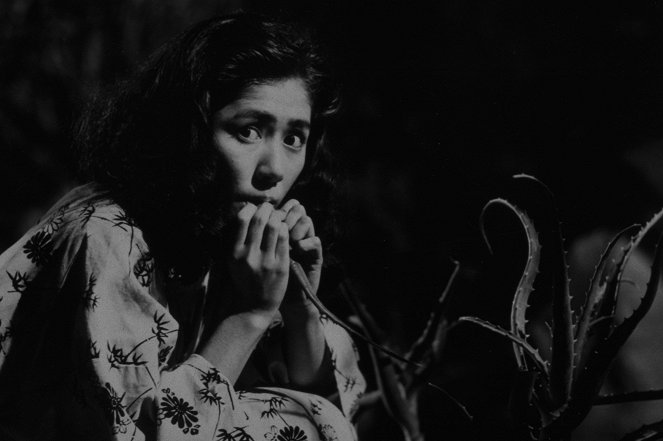Réalisation:
Shôhei ImamuraPhotographie:
Takashi KawamataMusique:
Tôru TakemitsuActeurs·trices:
Yoshiko Tanaka, Kazuo Kitamura, Etsuko Ichihara, Norihei Miki, Akiji Kobayashi, Taiji Tonoyama, Shôichi Ozawa, 石丸謙二郎, 大滝秀治, 河原さぶ, 白川和子, Rikiya Yasuoka (plus)Résumés(1)
Hiroshima – 6 Août 1945. La vie suit son cours, comme tous les jours. Un terrible éclair déchire le ciel. Suivi d’un souffle terrifiant. Et l’Enfer se déchaîne. Des corps mutilés et fantomatiques se déplacent parmi les amas de ruines. Au même moment, Yasuko fait route sur son bateau, vers la maison de son oncle. Une pluie noire s’abat alors sur les passagers. Quelques années plus tard, les irradiés sont devenus des parias dans le Japon d’après-guerre. (Les Bookmakers)
(plus)Critiques (2)
Honestly, what intrigued me most about the film is the fact that even though I imagined Hiroshima as a vast area where nothing exists, people proved to be like cockroaches. They can survive pretty much anywhere, although, of course, the conditions are not ideal. It just makes dying a lot more uncomfortable.
()
My first encounter with renowned Japanese director Shohei Imamura didn't go badly, but it only reaffirmed my traditional reservations about East Asian productions. It's that light overacting and emotional distinctiveness that alienates me from a significant part of these productions. The director used black and white material and deliberately tried to create a film that seemed to have originated in the 1950s when the story takes place. The explosion of the nuclear bomb is depicted in flashbacks and only a relatively small part of the film is dedicated to it. The crucial focus is on the description of the suffering and dying of the affected individuals years after the explosion. Imamura shows that the survivors had to face not only physical disability but also social ostracism. The main protagonist is a girl who practically cannot get married in Japanese society because she carries the stigma of a radiation-affected person with deteriorating health. Given the theme and execution, it is quite logical that the film received a decent response at festivals and can be considered a quality attempt to come to terms with this Japanese trauma. It is an intimate affair that is somewhat dragged out but with emotionally impactful moments throughout. The scene where an affected man describes how he left his small son, whom he couldn't rescue from the rubble to the approaching fire, is simply chilling. Overall impression: 75%.
()
Photos (29)
Photo © Les Bookmakers


Annonces